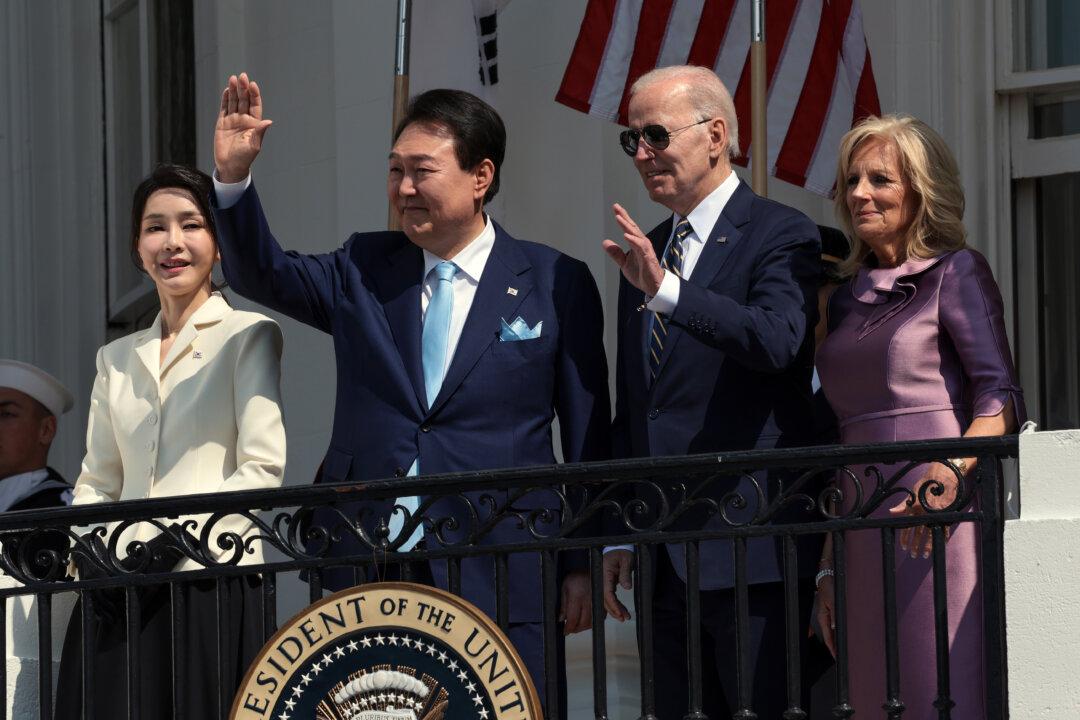South Korean President Yoon Suk-yeol took a firm stance on the issue of the Taiwan Strait on the eve of his state visit to the United States. Experts say this signifies that South Korea has officially abandoned its policy of strategic ambiguity between Washington and Beijing.
In an interview with Reuters on April 19, Yoon said that tensions in the Taiwan Strait “occurred because of [Beijing’s] attempts to change the status quo by force, and [South Korea] together with the international community absolutely oppose such a change.”






